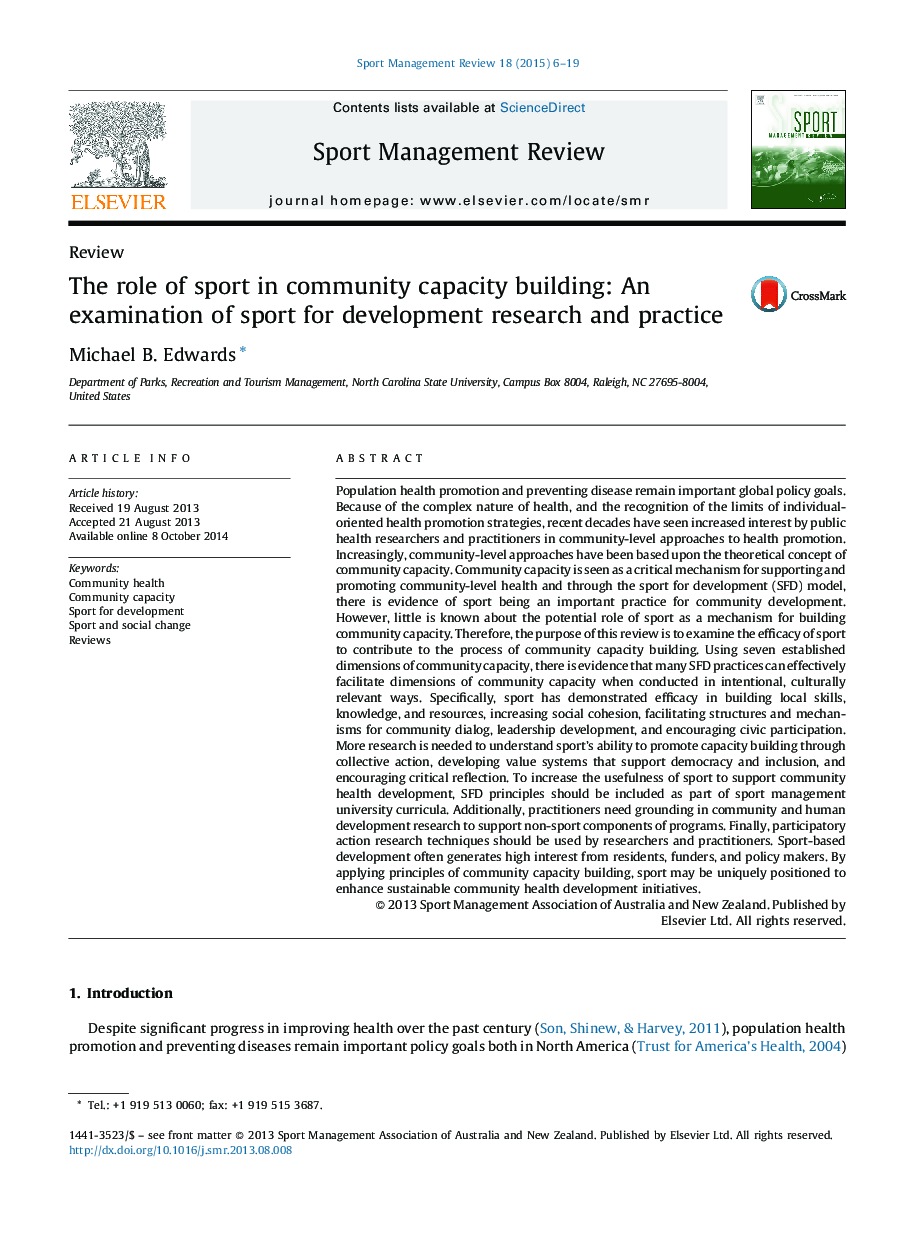| کد مقاله | کد نشریه | سال انتشار | مقاله انگلیسی | نسخه تمام متن |
|---|---|---|---|---|
| 140962 | 162797 | 2015 | 14 صفحه PDF | دانلود رایگان |
• SFD builds capacity via social interaction, skill building, and empowerment.
• SFD may be less effective developing shared values and critical learning cultures.
• There is a need for evidence of capacity building outcomes in North America.
• Sport practitioners need grounding in developmental components of SFD programs.
• Participatory action research may better promote capacity building through SFD.
Population health promotion and preventing disease remain important global policy goals. Because of the complex nature of health, and the recognition of the limits of individual-oriented health promotion strategies, recent decades have seen increased interest by public health researchers and practitioners in community-level approaches to health promotion. Increasingly, community-level approaches have been based upon the theoretical concept of community capacity. Community capacity is seen as a critical mechanism for supporting and promoting community-level health and through the sport for development (SFD) model, there is evidence of sport being an important practice for community development. However, little is known about the potential role of sport as a mechanism for building community capacity. Therefore, the purpose of this review is to examine the efficacy of sport to contribute to the process of community capacity building. Using seven established dimensions of community capacity, there is evidence that many SFD practices can effectively facilitate dimensions of community capacity when conducted in intentional, culturally relevant ways. Specifically, sport has demonstrated efficacy in building local skills, knowledge, and resources, increasing social cohesion, facilitating structures and mechanisms for community dialog, leadership development, and encouraging civic participation. More research is needed to understand sport's ability to promote capacity building through collective action, developing value systems that support democracy and inclusion, and encouraging critical reflection. To increase the usefulness of sport to support community health development, SFD principles should be included as part of sport management university curricula. Additionally, practitioners need grounding in community and human development research to support non-sport components of programs. Finally, participatory action research techniques should be used by researchers and practitioners. Sport-based development often generates high interest from residents, funders, and policy makers. By applying principles of community capacity building, sport may be uniquely positioned to enhance sustainable community health development initiatives.
Journal: Sport Management Review - Volume 18, Issue 1, February 2015, Pages 6–19
